View all recordings of works by this composer
A Gloucestershire Rhapsody (1)A Picture (1)
A cradle song (1)
All night under the moon (3)
An Epitaph (1)
Black Stitchel (4)
Blaweary (1)
Bread and Cherries (1)
By a bierside (orch. Herbert Howells) (1)
By a bierside (8)
Captain Stratton's fancy (2)
Carol of the Skiddaw Yowes (1)
Cathleen ni Houlihan (2)
Cello Sonata in E minor (1)
Chorale Prelude on 'Rockingham' (1)
Dearest, when I am dead (2)
Desire in Spring (1)
Despair (1)
Dinny Hill (1)
Down by the Salley Gardens (5)
Dreams of the sea (1)
Edward, Edward (3)
Elizabethan Songs (5) (10)
Epitaph in old mode (1)
Even such is time (1)
Everyone Sang (1)
Fain would I change that note (1)
God mastering me (ed. Ian Venables) (1)
Goodnight to the meadow (1)
Ha'nacker Mill (2)
Hawk and Buckle (1)
I Heard a Soldier (1)
If We Return (1)
In Flanders (orch. Herbert Howells) (1)
In Flanders (6)
In Memoriam, Easter 1915 (1)
I shall be ever maiden (1)
I will go with my father a-ploughing (3)
Last hours (2)
Lights Out (7)
Ludlow & Teme (3)
Ludlow and Teme (3)
Nine of the clock, O (2)
Nocturne in A flat major (2)
Nocturne in B major (1)
Nocturnes in B and A (1)
On Wenlock Edge (1)
On the Downs (2)
On your midnight pallet (1)
Piano Sonata no.1 in F minor (1)
Piano Sonata no.2 in D major (1)
Piano Sonata no.3 in D minor (1)
Poems (2) for piano (1)
Preludes (5) for piano (2)
Preludes nos.1-9 (2)
Reconciliation (1)
Red roses (1)
Revery (1)
Salley Gardens (1)
Sappho Songs (7) (2)
Scherzo (1)
Sehnsucht (Longing) (1)
Severn Meadows (7)
Since I believe in God the Father (2)
Sleep (arr. George Arthur) (1)
Sleep (arr. William Newell) (1)
Sleep (orch. Gerald Finzi) (1)
Sleep (4)
Snow (4)
Song of silence (1)
Song of the Summer Woods (1)
String Quartet in D minor (2)
The Cloths of Heaven (1)
The Dying Patriot (1)
The Fiddler of Dooney (2)
The Fields are Full (2)
The Folly of being comforted (1)
The Latmian Shepherd (2)
The Scribe (1)
The Sea (1)
The Singer (1)
The Trumpet (1)
The Western Playland (and Of Sorrow) (1)
The Western Playland (2)
The boat is chafing (2)
The bonnie Earl of Murray (1)
The cherry trees (1)
The night of Trafalgar (1)
The ship (2)
The twa corbies (2)
The white cascade (1)
Thou didst delight my eyes (3)
To E.M.H. (1)
To violets (2)
Violin Sonata in D major (1)
Violin Sonata in E flat major (1)
Walking song (1)
War Elegy (1)
Western sailors (1)
Western watercolours (5) (1)
When Death to either shall come (1)

Ivor Bertie Gurney (28 August 1890 – 26 December 1937) was an English composer and poet.
Born at 3 Queen Street, Gloucester in 1890, the second of four surviving children of David Gurney, a tailor, and his wife Florence, a seamstress, Gurney showed musical ability early. He sang as a chorister at Gloucester Cathedral, from 1900 to 1906, when he became an articled pupil of Dr Herbert Brewer at the cathedral, where he met fellow composer Herbert Howells who became a lifelong friend. Alongside Gurney and Howells, Brewer's third pupil at this time was Ivor Novello then known as Ivor Davies. He also enjoyed an enduring friendship with the poet F. W. Harvey whom he met in 1908. The most significant adult figures in Gurney's early life were the Reverend Alfred H. Cheesman and two sisters, Emily and Margaret Hunt who nurtured Gurney's interests in music and literature. Gurney began composing music at the age of 14, and won a scholarship to the Royal College of Music in 1911. He studied there with Charles Villiers Stanford, who also taught Ralph Vaughan Williams, John Ireland, Marion M. Scott, Rebecca Clarke, Frank Bridge, Arthur Bliss, Howells and many others. Stanford told Howells that Gurney was potentially "the biggest of them all", but he was "unteachable". Gurney possessed a dynamic personality but had been troubled by mood swings that became apparent during his teenage years. He had a difficult time focusing on his work at college and suffered his first breakdown in 1913.After taking a rest, he seemed to recover and returned to college.
* This text is available under the Creative Commons Attribution-ShareAlike
License
* Wikipedia® is a registered trademark of the Wikimedia Foundation, Inc., a non-profit organization.
* Original page
Recent Gurney releases
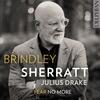
Fear No More
£13.60
(Delphian)
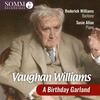
Vaughan Williams - A Birthday Garland
£10.79
(Somm)

Carolyn Sampson: but I like to sing...
£12.69
(BIS)

Gurney - Piano Sonatas 1 & 3, 5 Preludes, Autumn, etc.
£11.78
(Naxos)
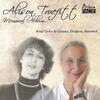
Alison Truefitt Memorial Album: Song Cycles by Gurney, Dodgson, Runswick
£11.38
(Prima Facie)
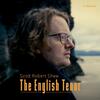
The English Tenor
£11.38
(Divine Art)

Benjamin Appl: Forbidden Fruit
£13.88
(Alpha)
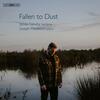
Fallen to Dust: English Song Recital
£12.69
(BIS)
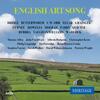
English Art Song
£29.07
(Heritage)

A New Light: Elgar & Gurney
£12.69
(EM Records)
 FREE UK SHIPPING OVER £30!
FREE UK SHIPPING OVER £30!